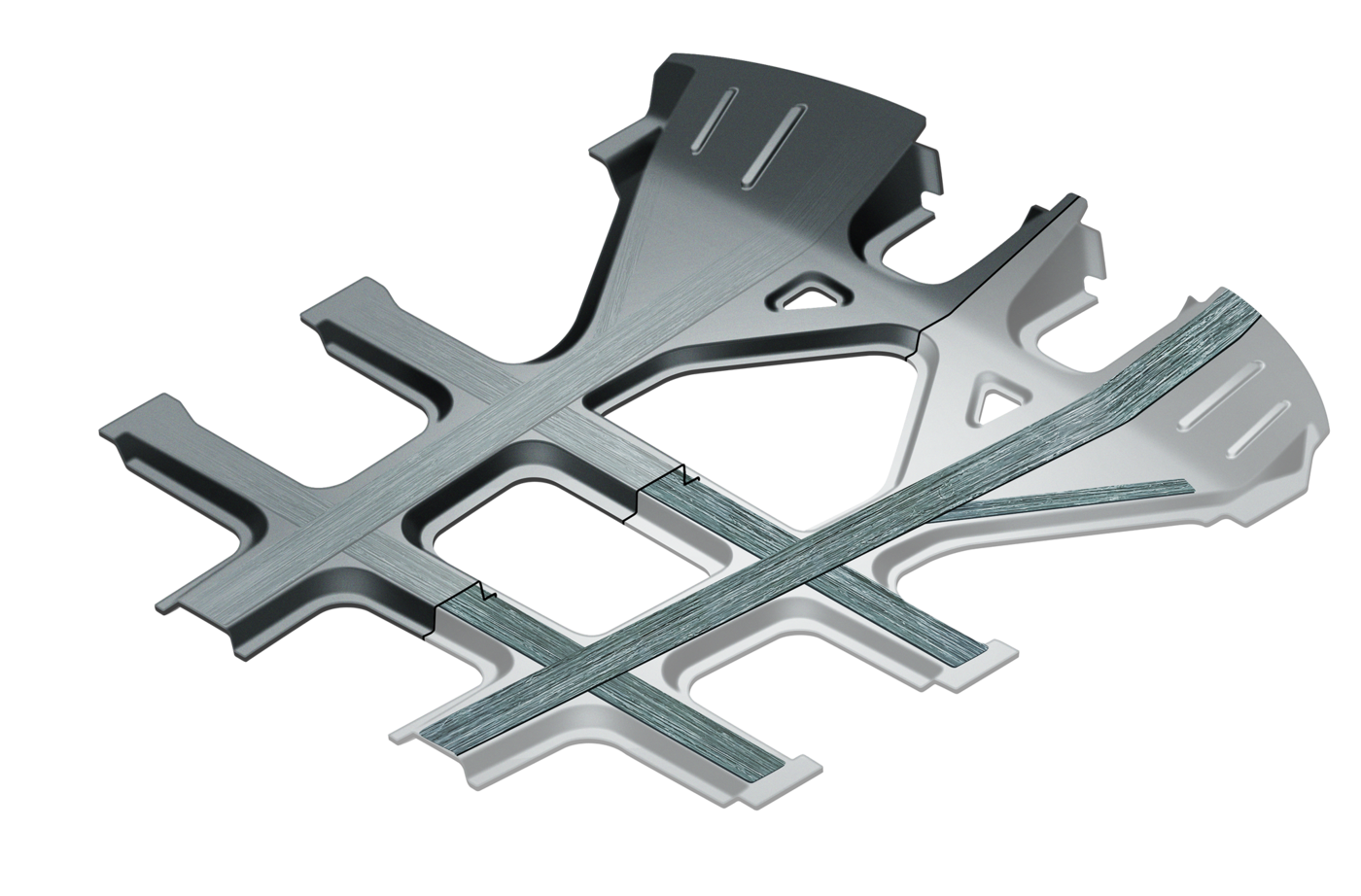
Flat profile design and load category design using lightweight hybrid CFRP/metal components - a cost-effective way of gaining more space inside the vehicle
An extremely minimalist use of carbon fibre is one of the success factors in the economical lightweight construction of body platforms. Hybrid construction is one way of achieving this. Proof of this is the HybCar demonstrator, a further development of the longitudinal and cross beam structure in the vehicle floor, and based on the EDAG SCALEbase. Instead of the steel structure, which makes extensive use of profiles, the HybCar combines metal and lightweight design. Using the fibre placement process and on the basis of a thermoplastic matrix, carbon fibre-reinforced tapes are laid on a metal plate in a load path-optimised manner, and formed in a newly developed process. This local load path reinforcing profile design enables the dimension chain in the entire floor area to be reduced by more than seven millimetres. In addition, the floor structure can be dimensioned as required (e.g. depending on battery size). The space gained in this way can be passed on 1:1 to the areas of aerodynamics/consumption or comfort/interior size.
The flat design of the support structure meant that over 18 millimetres in height were gained in the front foot area. What is more, the weight was reduced by more than 10 kilos. The cost of lightweight design is about € 3 per kilogram, since there is almost no waste with the expensive carbon, which is only used in the direction of the fibres.
A full-scale demonstrator of the HybCar was presented in 2021. The production of the prototype was preceded by a digital product development, which was also developed in the course of the project. Our lightweight design experts developed the HybCar demonstrator as part of the joint MAI CC4.0 "HybCar" research project, in which we were working with SGL Carbon, Automation W+R, the Institute for Materials Resource Management (MRM) at the University of Augsburg and the Fraunhofer Institute for Casting, Composite and Processing Technology IGCV. The project was being funded by the the Bavarian State Ministry for the Economy, Regional Development and Energy.
Do you want to make your products and development methods fit for the production technologies of the future? We will be happy to help you. Dr. Petra Fröhlich looks forward to hearing from you.
Similar projects